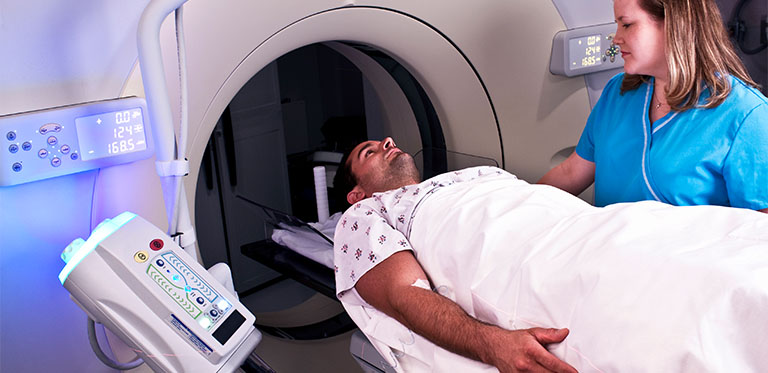A Positron Emission Tomography (PET-CT) scan is an imaging test that produces multidimensional, color images of your organs and tissues. The scan not only shows what an organ looks like, but also how it is functioning. The test uses a safe, injectable radioactive chemical called a radiotracer and a device called a PET-CT scanner.
The scanner detects diseased cells that absorb large amounts of the radiotracer, which indicates a potential health problem. A PET-CT scan can be more sensitive than other imaging tests and may show changes to your body sooner.
The PET-CT scan process typically takes about two hours. It will take approximately 60 to 90 minutes for the radiotracer to start working. Once you’re ready to start the scan, you will be asked to lie on your back on a platform. The platform will enter a long tube where the PET-CT scan is performed. The actual PET-CT scan takes about 30 minutes. This is an outpatient procedure, so you will go home on the same day.
Your healthcare provider may order a PET-CT scan to check for signs of:
- Cancer
- Coronary artery disease, heart attack or other heart problems
A Radiologist with specialized training in PET-CT scans will review your images and send a report to your healthcare provider.
If you have questions regarding PET-CT scans, please discuss these with your healthcare provider.
